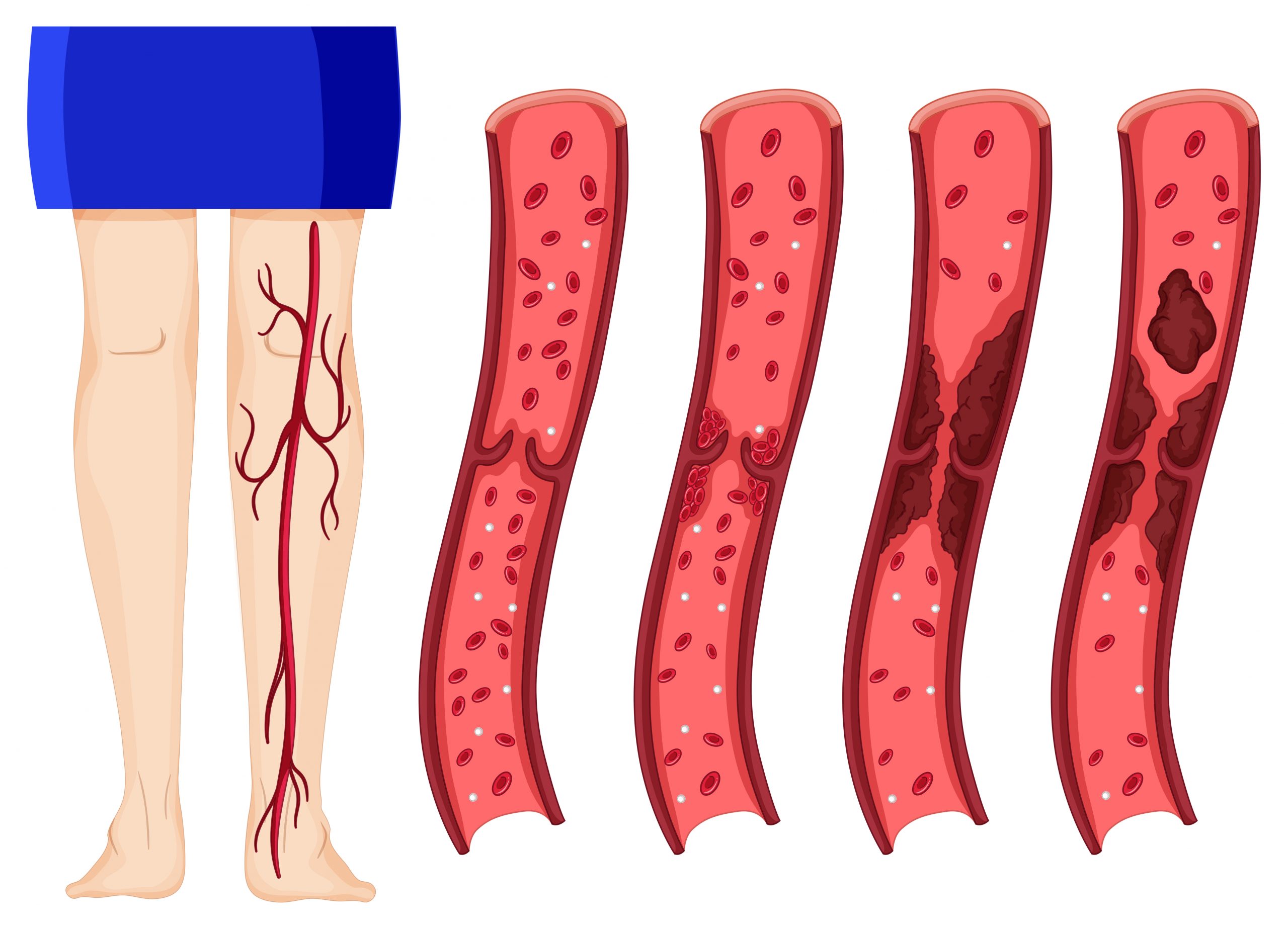

In order to identify potential proteins (biomarkers) linked to subsequent cognitive problems, including serious and persistent problems with thinking, concentration, and memory, Dr. Max Taquet and colleagues from the Universities of Oxford and Leicester examined blood tests from 1,837 people who had been hospitalized with COVID-19.
They detected two distinct profiles of biomarkers in a recent research that was published in Nature Medicine. The first was having a high concentration of the protein fibrinogen, and the second was having a high concentration of the protein fragment D-dimer. Other characteristics of the profiles suggested that blood clots are probably what they reflect. Electronic health records were used to replicate the key findings in a different group.
Dr Taquet said: ‘Both fibrinogen and D-dimer are involved in blood clotting, and so the results support the hypothesis that blood clots are a cause of post-COVID cognitive problems. Fibrinogen may be directly acting on the brain and its blood vessels, whereas D-dimer often reflects blood clots in the lungs and the problems in the brain might be due to lack of oxygen. In line with this possibility, people who had high levels of D-dimer were not only at a higher risk of brain fog, but also at a higher risk of respiratory problems.
‘The ultimate goal is to be able to prevent and reverse the cognitive problems seen in some people after COVID-19 infection. Although our results are a significant advance in understanding the basis of these symptoms, more research is needed into the causes and effects before we propose and test interventions.’
Professor Paul Harrison from the University of Oxford’s Department of Psychiatry, who supervised the study, said: “Identifying predictors and possible mechanisms is a key step in understanding post-COVID brain fog. This study provides some significant clues.”
The participants in this study are a part of the University of Leicester-led PHOSP-COVID (Post-hospitalisation COVID-19) study, which is sponsored by UKRI. Their memory was tested formally and by questioning them about their perceptions of their memory six and twelve months after being admitted to the hospital.
Geoffrey Hodgson, a participant in a PHOSP-COVID trial, said: ‘Brain fog has been a symptom of long covid that I’ve really struggled with. I found things I used to do easily much more difficult, such as the software I used for work.
‘Taking part in the research and hearing the findings around cognitive difficulties has really helped me. It’s given me an understanding I didn’t have, and that definitely makes things easier.’
Dr Rachael Evans, Associate Professor, Department of Respiratory Sciences at the University of Leicester, said: ‘Large detailed studies such as PHOSP are vital if we’re to understand the causes of the often debilitating, symptoms associated with Long Covid and to urgently find treatments.’
The National Institute for Health and Care Research (NIHR) Biomedical Research Centres in Leicester and Oxford Health provided support for the project, which was funded by MQ Mental Health Research and the Wolfson Foundation.
more recommended stories
 Red Blood Cells Improve Glucose Tolerance Under Hypoxia
Red Blood Cells Improve Glucose Tolerance Under HypoxiaKey Takeaways for Clinicians Chronic hypoxia.
 Nanoplastics in Brain Tissue and Neurological Risk
Nanoplastics in Brain Tissue and Neurological RiskKey Takeaways for HCPs Nanoplastics are.
 AI Predicts Chronic GVHD Risk After Stem Cell Transplant
AI Predicts Chronic GVHD Risk After Stem Cell TransplantKey Takeaways A new AI-driven tool,.
 Red Meat Consumption Linked to Higher Diabetes Odds
Red Meat Consumption Linked to Higher Diabetes OddsKey Takeaways Higher intake of total,.
 Pediatric Crohn’s Disease Microbial Signature Identified
Pediatric Crohn’s Disease Microbial Signature IdentifiedKey Points at a Glance NYU.
 Nanovaccine Design Boosts Immune Attack on HPV Tumors
Nanovaccine Design Boosts Immune Attack on HPV TumorsKey Highlights Reconfiguring peptide orientation significantly.
 High-Fat Diets Cause Damage to Metabolic Health
High-Fat Diets Cause Damage to Metabolic HealthKey Points Takeaways High-fat and ketogenic.
 Acute Ischemic Stroke: New Evidence for Neuroprotection
Acute Ischemic Stroke: New Evidence for NeuroprotectionKey Highlights A Phase III clinical.
 Statins Rarely Cause Side Effects, Large Trials Show
Statins Rarely Cause Side Effects, Large Trials ShowKey Points at a Glance Large.
 Can Too Many Antioxidants Harm Future Offspring?
Can Too Many Antioxidants Harm Future Offspring?Key Takeaways High-dose antioxidant supplementation in.

Leave a Comment